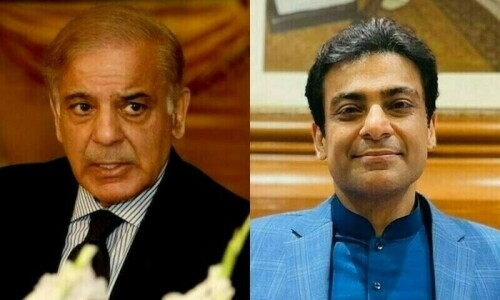Trump lays out 'non-interventionist' US military policy

President-elect Donald Trump laid out a US military policy on Tuesday that would avoid interventions in foreign conflicts and instead focus heavily on defeating the Islamic State militancy.
In the latest stop on a "thank you" tour of states critical to his November 8 election win, Trump introduced his choice for defence secretary, General James Mattis, to a large crowd in this city near the Fort Bragg military base, which has deployed soldiers to 90 countries around the world.
"We will stop racing to topple foreign regimes that we know nothing about, that we shouldn't be involved with," Trump said. "Instead, our focus must be on defeating terrorism and destroying ISIS, and we will."
Trump's rhetoric was similar to what he said during the election campaign when he railed against the war in Iraq.
In Fayetteville, he vowed a strong rebuilding of the US military, which he suggested has been stretched too thin. Instead of investing in wars, he said, he would spend money to build up America's ageing roads, bridges and airports.
Even so, Trump said he wants to boost spending on the military. To help pay for his buildup, Trump pledged to seek congressional approval for lifting caps on defence spending that were part of "sequestration" legislation that imposed cut spending across the board.
"We don't want to have a depleted military because we’re all over the place fighting in areas that we shouldn't be fighting in. It's not going to be depleted any longer," he said.
Trump said any nation that shares these goals will be considered a US partner.
"We don't forget. We want to strengthen old friendships and seek out new friendships," he said. He said the policy of "intervention and chaos" must come to an end.
While US armed forces are deployed in far-flung places around the globe, they are only involved currently in active combat in the Middle East, specifically Iraq and Syria for the most part.
"We will build up our military not as an act of aggression, but as an act of prevention," he said. "In short, we seek peace through strength."
Trump described Mattis as the right person for the job and urged Congress to approve a waiver to let him take on the civilian position. Under US law a military leader must be retired for seven years before becoming eligible to become defence secretary.
Speaking to the crowed, Mattis said, "I look forward to being the civilian leader as long as the Congress gives me the waiver and the Senate votes to consent."
"We're going to get you that waiver," Trump said, returning to the microphone. "If you don’t get that waiver there are going to be a lot of angry people."












































